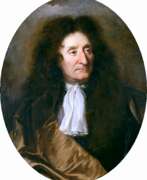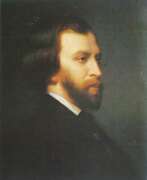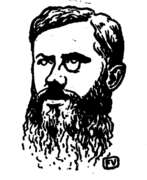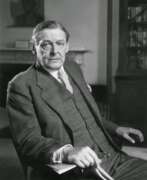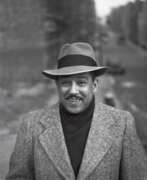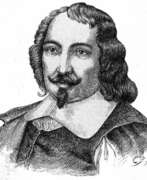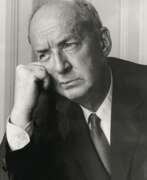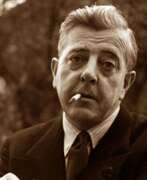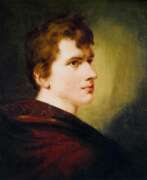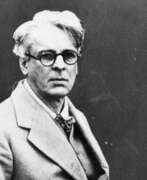Playwrights Lyric poetry
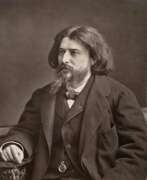

Alphonse Daudet was a French novelist and short-story writer, best remembered for his sentimental tales of provincial life in southern France. Born in Nîmes in 1840, Alphonse Daudet's early life was marked by financial hardship, influencing much of his later work. He moved to Paris with his brother Ernest and quickly immersed himself in the literary world, publishing his first collection of poems, Les Amoureuses, at a young age.
Alphonse Daudet's career flourished with notable works such as Le Petit Chose, Tartarin de Tarascon, and Lettres de Mon Moulin, which highlighted the charm and simplicity of rural life in Provence. His storytelling, often infused with humor and satire, made significant contributions to French literature, capturing the essence of Provencal culture.
Despite his literary success, Alphonse Daudet's personal life was fraught with challenges, including a long-term illness that he bravely depicted in his later works. He passed away in Paris in 1897, leaving behind a legacy celebrated for its profound impact on regionalist literature and its vivid portrayal of French life and culture during the 19th century.
For those interested in the intricate tapestry of French literature and the enchanting allure of Provence, Alphonse Daudet's works offer a gateway to the past, brimming with the richness of its regional heritage and the timeless appeal of its narratives. To delve deeper into Daudet's life and explore his contributions to literature, subscribing to updates on related sales and auction events can be a rewarding pursuit for collectors and enthusiasts alike, ensuring they remain informed about opportunities to engage with his enduring legacy.
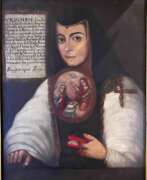

Juana Inés de la Cruz or Juana of Asbaje, real name Juana Inés de Asbaje Ramírez de Santillananota, was a Mexican poet, scholar, and writer of the Latin American colonial period and the Spanish Baroque, and a Jerónimo nun.
Juana Ramírez was born into a poor family (Spanish father and Creole mother) and from an early age showed a burning thirst for knowledge and giftedness, but as a woman she was almost entirely self-taught. By her teens, she had already learned Greek logic and taught Latin to young children. She also learned Nahuatl, an Aztec language spoken in Central Mexico, and wrote several short poems in the language. At the age of 16, the girl was introduced to the court, and her intelligence impressed even Viceroy Antonio Sebastian de Toledo, Marquis de Mancera, and in 1664 he invited her to serve as maid of honor.
In 1669, at the age of 21, she took her tonsure at the Convent of Santa Paula of the Hieronymite Order in Mexico City, where she remained a recluse for the rest of her life. In the convent, Sister Juana enjoyed exceptional freedom: she continued to socialize with scholars and senior members of the court, amassed one of the largest private libraries in the New World, as well as a collection of musical and scientific instruments. Her plays in verse, poetry, and compositions for state and religious festivals were frequently and successfully performed at the palace.
Sister Juana was an outstanding representative of Spain's Golden Age: she was the last significant writer of the Latin American Baroque and the first great exponent of colonial Mexican culture. Sister Juana wrote sonnets, romances, and ballads, drawing on a vast store of classical, biblical, philosophical, and mythological sources. She also composed moral, satirical, and religious texts, as well as many poems praising courtiers, but she also defended women's right to education.
At the end of her life, due to pressure from religious dogmatists, Sister Juana had to sell her extensive library of some 4,000 volumes and return to strict reclusiveness. In 1695, the plague struck the convent and, while caring for her sisters, Juana died of the disease at about the age of forty-four.
Today, Juana Inés de la Cruz is a national icon of Mexico and Mexican identity as a prominent writer of the Spanish-American colonial period. The former convent where she lived is a center of higher education, and her image adorns Mexican currency.
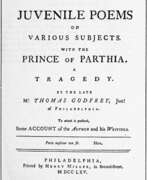

Thomas Godfrey, Jr. was an American poet and playwright.
Thomas Godfrey's father was the inventor of the quadrant and one of the first members of the American Philosophical Society, organized by Benjamin Franklin. Having been home educated and graduated from the Philadelphia Academy, the young Godfrey was first interested in painting, but soon switched to poetry.
Thomas Godfrey lived only 26 years, but left a bright mark in the history of the young country. He managed to write a play-tragedy about ancient times, "The Parthian Prince", which was published in the United States after his death, in 1765. It was staged by an American troupe in Philadelphia on April 24, 1767. This play was significant in that it was the first play written by a native-born American and staged by professionals.
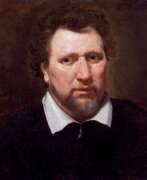

Ben Jonson or Benjamin Jonson was an English poet, playwright, actor and dramatic theorist.
Jonson came from a simple family, served in the army, seriously engaged in self-education, and in 1586 began a career in the theater. In the 1590s he had the good fortune to meet William Shakespeare. In 1598 Shakespeare was able to put in the theater "Globe" Jonson's play "Every man for his own good," where he played one of the roles. The two playwrights became friends and collaborated on productions of the plays. Jonson was one of the most erudite playwrights of his time and was sure to apply his deep knowledge of Greek and Roman classics in his work.
Jonson's daring character failed him more than once: he often got into fights and duels, and later began to prefer direct violence mockery of his opponents in his plays. But even in this case, he not once got into serious trouble and even sat in prison.
In 1605 Jonson with great success put in the "Globe" play "Volpone". A great admirer of Johnson's work was King James, and the next ten years were the most colorful in his career. His plays written between 1605 and 1615 - Epicoen, The Alchemist, Catalina, Bartholomew Fair and The Devil is an Ass - were a great success, rivaling Shakespeare himself.
Ben Jonson is a vivid representative of English literature of its Renaissance period. His best works ridicule human weaknesses with the help of comic realism, verbal brilliance and a remarkable gift for caricature and parody.


Alan Alexander Milne was a British journalist, playwright and children's author.
While studying at Trinity College, Cambridge, Milne began writing for Granta magazine, and in 1906 he joined the humor magazine Punch, where he wrote humorous poems and quirky essays until 1914. During World War I he served as a communications officer, and afterward, in 1920, Milne had a son, Christopher Robin, whose name soon became known to the world.
From 1921 Milne wrote several comedy plays and also began writing children's poetry and prose for his young son, having finally found his calling. Milne's major successes were his books Winnie the Pooh (1926) and The House on Pooh Corner (1928). These two volumes tell the adventures of a boy named Christopher Robin and his playmates - animals that were "born" from the toys of the real Christopher Robin. The central character is Winnie the Pooh Bear, accompanied by the fussy Rabbit, the sullen Donkey Ia, the bouncy tiger Tigger, the kind kangaroo Kanga and her baby Roo, the wise Owl and the timid Piglet. The adventures of Pooh and his friends in the forest of One Hundred Acres with illustrations by Ernest Shepard became bestsellers.
They were translated into different languages of the world and reprinted many times, filmed cartoons. In 1929 Milne adapted another children's classic, Kenneth Graham's The Wind in the Willows, for stage production as Toad of Toad Hall. Ten years later he wrote an autobiography, Now It's Too Late.
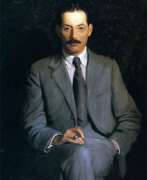

Edwin Arlington Robinson is an American poet, writer and playwright. He won the Pulitzer Prize three times.
Edwin did not finish his studies at Harvard, but in his youth he wrote a lot, experimenting with translations of Greek and Latin poets, sent his poems for publication in different editions, not always successfully. In 1904, Robinson's poems were seen by President Theodore Roosevelt and gave the poet his way.
Although much of Robinson's poetry deals with failed lives, some critics consider his work to be life-affirming. His Collected Poems (1922) won the first Pulitzer Prize ever awarded to poetry. In 1925, Robinson won a second Pulitzer Prize for his poem "The Man Who Died Twice," the story of a street musician whose only musical masterpiece is a lost after a night of debauchery. And in 1928, Robinson won the Pulitzer Prize again - for his long poem "Tristram," one of a series of poems based on the legends of King Arthur.
Robinson was also nominated four times for the Nobel Prize in Literature, and in 1927 he was elected a member of the American Academy of Arts and Letters.
Although Robinson was one of the most prolific American poets of the early 20th century, he is now remembered for a few short poems. The poet was dedicated to his art and led a solitary life. Edwin Robinson's works have been translated into many languages of the world, including Russian.


Oscar Fingal O'Flahertie Wills Wilde - Irish writer, poet, philosopher and playwright, a bright representative of the literature of the Victorian period.
Oscar's parents were fond of literature and history, gave their son an excellent education. After graduating from Oxford University, Oscar moved to London, where he quickly entered the circle of secular society. His first book, a collection of poems, was published in 1881. Over the next year, the aspiring writer traveled across America with lectures on art. Then he traveled to France, where he met key figures of French literature of the time - Victor Hugo, Paul Verlaine, Emile Zola and others. Returning to his homeland, Oscar married, thanks to which his children's fairy tales appeared. His popularity grew rapidly, his work was favorably reviewed by Bernard Shaw.
Next, "The Crime of Lord Arthur Seville", "The Canterville Ghost", "The Sphinx without a riddle" were written. In 1890 Oscar Wilde wrote the novel "The Portrait of Dorian Gray", which was considered immoral in high society, but it brought the author the greatest fame. This novel is still considered a classic of world literature to this day. In the early 1890s Oscar Wilde wrote comedy plays "Lady Windermere's Fan", "A Woman Not Worth Watching", "An Ideal Husband" and "How Important It Is to Be Serious". In them, the author shows himself a master of witty dialog. During his life, Wilde wrote nine plays, one novel, many poems, stories and essays.
Bright and full life of a successful and talented writer ended when he met Lord Alfred Douglas. For this scandalous connection with the man, Oscar Wilde was sentenced to two years in prison. After leaving prison, he settled in France under an assumed name, abandoned by everyone. He wrote his last work, the autobiographical "Ballad of Reading Prison" two years before his death at the age of 46.
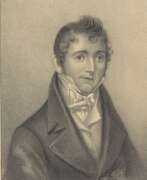

Samuel Woodworth was an American writer and poet, playwright and journalist.
After completing his apprenticeship as a printer, Woodworth traveled to New Haven, Connecticut, and worked for the Connecticut Herald newspaper. During the War of 1812, he edited a weekly newspaper called The War and others. He also wrote several successful operettas.
Samuel Woodworth was a popular poet in the 19th century and is remembered today as the author of the sentimental poem "The Old Oak Bucket".


